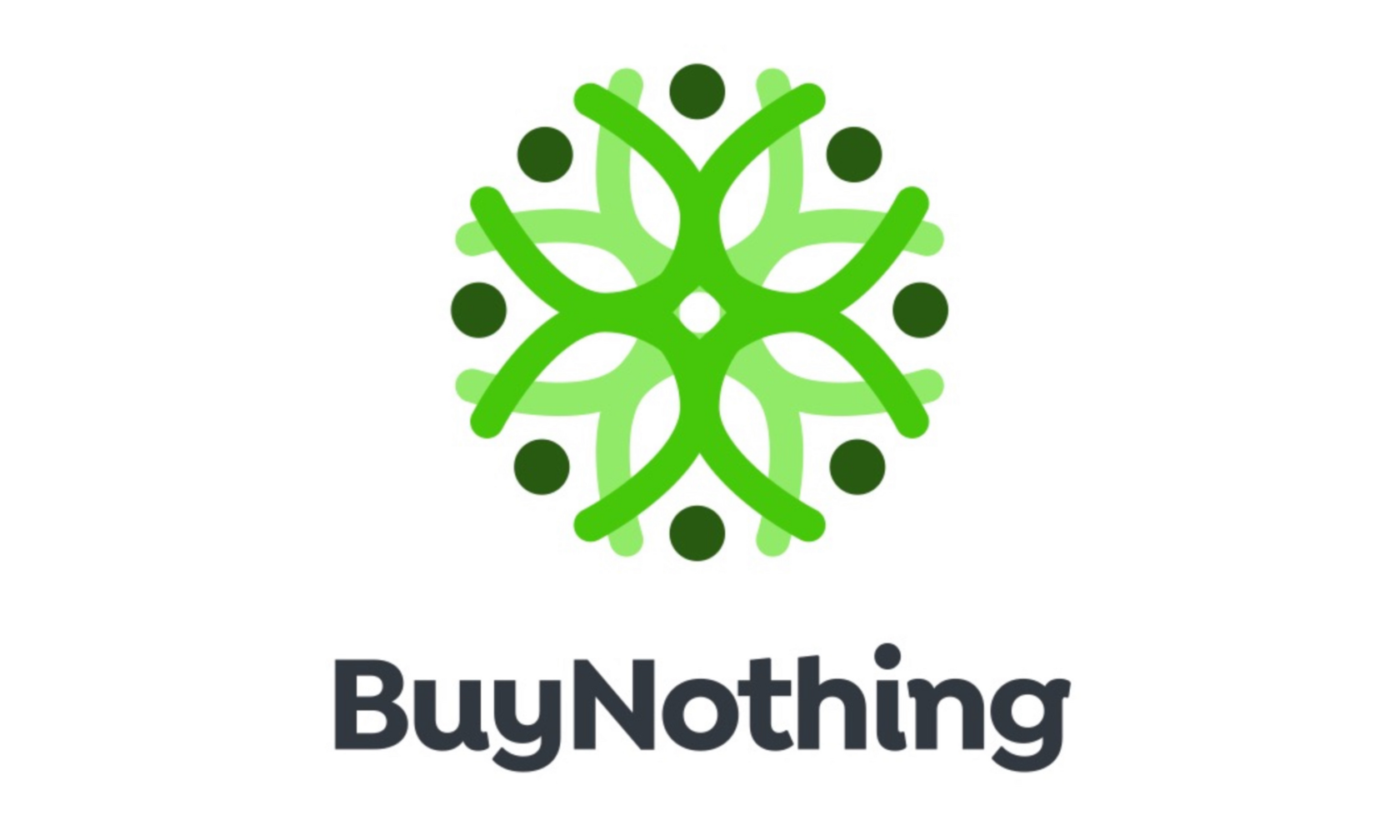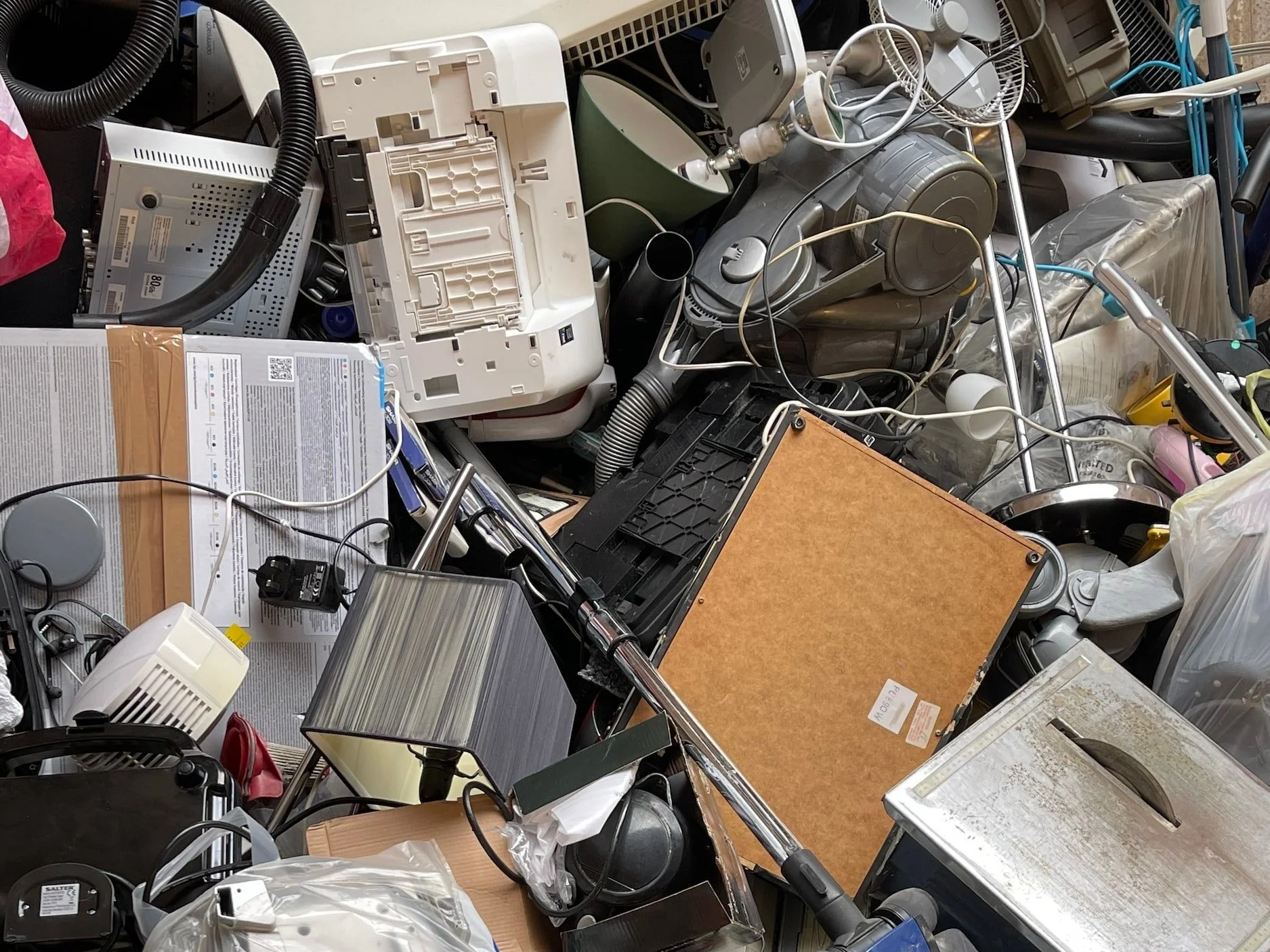5 tips for eco-friendly decluttering
If you’re environmentally conscious and hate the idea of creating unnecessary waste, throwing perfectly good items in the trash simply isn’t an option. This can make decluttering extra challenging as you come up against endless decisions about how to best dispose of your unwanted belongings.
The good news is that there are several eco-friendly ways to consciously declutter without contributing to landfills!
Here are 5 of my favorite ways to declutter as sustainably as possible 🌿.
1) Offer items on Buy Nothing, FreeCycle, or Trash Nothing
When decluttering, you'll inevitably come across items that you don’t want anymore, but can’t really be donated most thrift stores. Maybe it's a beauty product that didn't work for you, or partially-used household products. Rather than throwing these things away, consider offering them to your local Buy Nothing, FreeCycle, or Trash Nothing group. These hyper-localized online communities allow you to give away items for free, ensuring they don't end up in a landfill. In addition to reducing waste, these communities help people come together to share resources and make each other's lives a little easier. Things I’ve seen listed on these sites include hair dye, toys, toiletries, moving boxes, cleaning supplies, candles, party decorations, and even food!
2) Donate to specialized charities
Charities and non-profits are always looking for specific items that can help those in need. Many organizations collect business clothing for people re-entering the workforce, while others accept donations of furniture and household items to set up homes for incoming refugee families. Doing some research to find a local charity that resonates with you can make a big difference in your community and help you confidently let go of items that are no longer adding value to your life, but could still help someone else! Your donation can make a huge difference in someone's life, and it's a great way to declutter your home while helping your community.
3) Recycle old clothes & textiles
Let’s be clear: fast-fashion sucks. It’s a huge contributor to the myriad of issues stemming from the global textile industry. I won’t go into all the details, but you can read about its extensive environmental and human costs here, and learn why even donating your used clothing isn’t a guaranteed way to keep it from the landfill.
But that doesn’t mean we should give up. There are ways we can dispose of used textiles as consciously as possible.
Stained, hole-ridden, clothing - as well as towels and sheets - can actually be recycled. Many retailers like H&M and Zara offer textile recycling programs. (They’ll often give you a coupon in exchange for your donation, so beware the temptation to turn around and buy more.)
Another option for those old towels and sheets is to bring them to your local Humane Society, where they’ll be used as bedding for animals in need.
Of course, the ideal way to be more eco-friendly isn’t about how you dispose of textiles, but how you buy them in the first place. As much as possible, endeavor to only buy clothing you need, and try to limit the purchases you do make to used clothing retailers or ethical fashion brands.
4) Recycle electronic waste
Another grim reality we face when decluttering is that electronics are becoming more and more disposable. Between phones, laptops, tvs, speakers, and all the other gadgets in our lives, there’s a growing need for responsible ways to remove our old devices. Not to mention that in some states it’s actually illegal to put certain electronics in the trash.
That's where e-waste recycling comes in. These programs ensure that our old electronics are correctly disposed of so the toxic chemicals inside don't harm the environment. Many local governments and retailers like Staples and Best Buy offer e-waste recycling programs, though some may charge a fee for larger items. Visit your county’s website to check for e-waste recycling drop-off locations.
5) Get organized!
The best way to declutter responsibly is… (drum roll please)
Avoid accumulating clutter in the first place.
How can we do that?
First, try to be mindful about what you bring into your home. Only buy what you really need or love. Be wary of buying in bulk unless you actually have space for it. Don’t accept give-aways from friends unless you honestly, truly, want them. (I know that’s easier said than done, but you can always say “No thanks” when a friend offers you things she’s trying to get rid of.) The more you embrace conscious consumerism, the less you will contribute to landfills.
And second, get organized! By getting organized, observing your own habits around accumulating stuff, and creating systems that work for you, you can prevent clutter from building up before it becomes a problem.
Remember, when approached properly, organizing can be a fun and creative process that helps you deepen your relationship with yourself, your home, and the world around you.
xo,
Joanie
Recycling correctly is more than just sorting waste; it’s about keeping items clean for better reuse. We’ve created a free guide to help both new and experienced recyclers. Check it out, do your part, and remember every effort helps our environment.
Happy Recycling!






